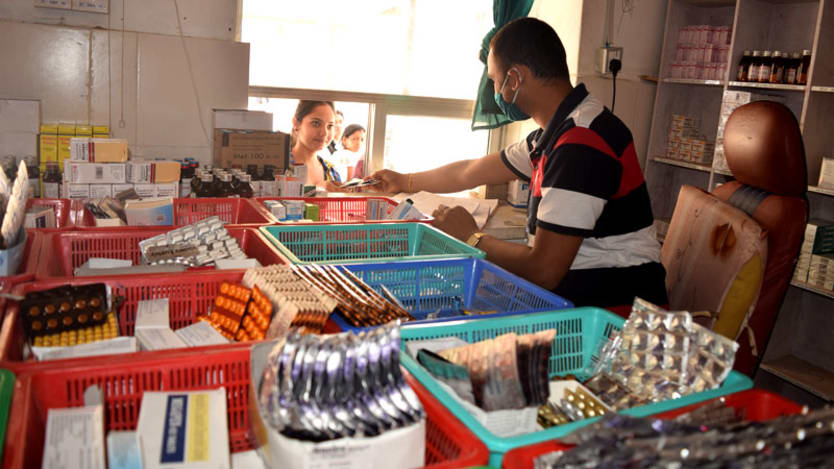
SAN FRANCISCO — Five companies are carrying out 63 percent of the most urgently needed global health research and development projects in the priority areas of malaria, HIV/AIDS, tuberculosis, Chagas disease, and leishmaniasis.
But having just a handful of companies responsible for most of the progress can jeopardize access to medicines, according to the 2018 Access to Medicines index, which was released on Monday.
“When a problem becomes so diverse that so many people are responsible for the solution, it becomes nobody’s problem, hence the siloed approach.”
— Jayasree Iyer, executive director, Access to Medicines FoundationThe independent report, published every two years by the Access to Medicines Foundation, ranks the world’s 20 largest pharmaceutical companies based on their efforts to make their drugs available in low- and middle-income countries.
“The bulk of the heavy lifting is carried out by a group of companies,” said Jayasree Iyer, executive director at AMF. “It is a very fragile situation.”
With a small group of companies dominating, a change in strategy for any of them could put much of these contributions at risk.
The pharmaceutical giant Merck & Co. recently pulled out of an agreement to supply the rotavirus vaccine to children in West Africa at a reduced price, deciding instead to send the vaccine to China, where it can sell for a higher price. The company cited supply constraints as the reason, noting unanticipated manufacturing issues, regulation, and packaging challenges.
“We’re going to have to get through this,” Iyer said. “But we need to not let things like that happen again.”
Merck dropped to the 12th spot in the 2018 index, down from fifth in 2016. The data for the 2018 report was through July, before the news around the rotavirus vaccine earlier this month. The drop in its ranking was due to below average performance in access planning for R&D, according to a report card on the company.
The index identifies ways Merck might improve its ranking, including expanding equitable pricing for more products, considering the unique needs of low- and middle-income countries throughout the R&D process, and boosting the affordability and supply of key medicines through voluntary licensing, when the patent holder allows others to distribute the drug.
Pointing to the leaders in the report, Iyer said she hoped other companies would take note of best practices on questions such as affordability between and within countries.
GlaxoSmithKline — the developer of a single-dose drug to prevent malaria relapse that had access plans in place from the beginning — tops the list of companies in the overall ranking. It is followed by Novartis, Johnson & Johnson, Merck KGaA, and Takeda.
Of the five companies developing most priority R&D, GSK has the more robust pipeline of projects, something the Access to Medicines Foundation sees both as a testament to GSK and a cause for concern.
Takeda, which implemented a new access-to-medicines strategy in 2016 that emphasized access to cancer care, has climbed the furthest in the rankings, jumping 10 places. The index features the Japan-based pharmaceutical company for its progress on R&D and pricing in what it describes as a tightly ranked middle pack.
The Access to Medicines index is one of a number of efforts to document best practices, note gaps and concerns, and hold companies to account.
“When a problem becomes so diverse that so many people are responsible for the solution, it becomes nobody’s problem, hence the siloed approach,” Iyer said at Devex’s Prescription for Progress event in San Francisco, California, last month.
Donors to AMF, including the Bill & Melinda Gates Foundation, United Kingdom Department for International Development, and Dutch Ministry of Foreign Affairs, have worked to engage pharmaceutical companies to address global health gaps. This has led to progress on diseases such as malaria, HIV/AIDS, and TB, as well as neglected tropical diseases.
Still, AMF believes that companies, as well as governments, donors, and other stakeholders, must remain closely aligned with each other, and communicate problems before they create detrimental public health impacts.
“Having access to medicines cannot be taken for granted,” Iyer said.
Update, Nov. 20, 2018: This article has been updated to clarify that Merck & Co. and Merck KGaA are separate entities.


